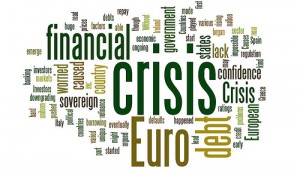
Economists have been in great demand since the beginning of the crisis. This, by the way, was a welcome change, since in the preceding years, those that are now called ‘The Great Moderation’, people did not know what to do with us. We went on, year after year, drawing the same diagrams on the blackboard, using the same slides course after course. Life went on without us, we felt like hamsters on a treadmill.
Everything has changed since the August, 2007: all of a sudden, the public cannot have enough economists, so great is their urge to question them. Since then we have all been very busy sitting for interviews, improvising answers to off-the-cuff questions and writing short pieces left and right. All very gratifying, no doubt, were it not for the fact that the questions are not necessarily the ones we can, or would prefer to answer.
The first question, often coming from high-society, is ’How come you did not see the onset of the crisis?’ There are two answers to that question, both mildly embarrassing to the professional economist: the first is simply that one was concentrating on a different subject (income distribution, or optimal auctions, or the labour market); a perfectly legitimate answer for an academic economist, although it may make him look a little foolish in the eyes of the general public. The second is that some economists did see the crisis coming, or rather, gave warning that, unless someone did something to stop the housing bubble in the US (and in Ireland, the UK and Spain), a crisis would follow. The warnings were few in number, and they were drowned in the plethora of optimism that always accompanies a bubble. Perfectly serious warnings were thus ignored. The economist may take heart from the fact that warnings were received by the authorities before September 11, 2001 and similarly ignored.
To be ignored however, may be better than to be listened to: two recent episodes will confirm the idea (names will be omitted, but are available on request). Not long ago, an economist suggested that in some cases one could observe the simultaneous occurrence of growth and an austerity programme. His statement was rather tentative, but it immediately caught the attention of those intent on making us believe that there is such a thing as growth-friendly fiscal consolidation: thus the economist’s statement was slightly twisted to make it sound like a theorem suffering no exceptions and widely published in the popular press. Of course, the rest of the profession jumped upon that statement and pretty much ridiculed its author, also in the popular press.
In the second episode, the co-authors of a well-known book about crises, looking at debt-to-GDP ratios in many countries over time, thought to have discovered a limit (90 percent) beyond which a country would find itself in serious difficulty. Those intent on warning profligate countries that they were playing with fire and that, once again, salvation lay in fiscal austerity took hold of that finding and threw it to the four winds. Later it was found that the authors had made a few mistakes in their handling of the data, and that no such limit existed. They were, of course, were pilloried by the profession.
There is a moral to the story: the economist must be aware that he is rarely listened to by a disinterested party. His words are used to suit the interests of his listener, otherwise discarded.



Greenspan ya venía calificando el comportamiento bursátil como exhuberancia irracional. Era lógica la analogía en otros conglomerados financieros como Europa y LA. Nadie hizo nada. La reestructuración de los activos fijos será inevitable y se requiere gran habilidad dinámica para evitar más quiebras. ¿tenemos los economistas herramientas adecuadas?